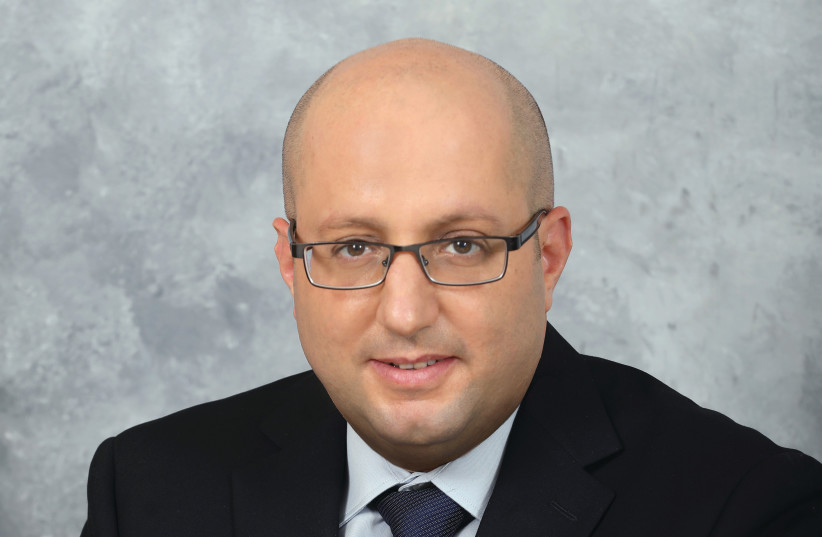Active in more than 20 countries on four continents, Shikun & Binui is Israel’s leading infrastructure and real estate company. Tamir Cohen, the company’s CEO, recently shared his thoughts with the Post about Shikun & Binui’s recent accomplishments, its future plans and suggestions on solving the housing crisis in Israel.
Since its founding in 1924, Shikun & Binui has constructedsome of the best-known and most significant buildings and infrastructure in Israel, including the Knesset building, the Rotenberg power plant at Naharayim; Orot Rabin in Hadera, Israel’s largest power plant; the Reading power plant in Tel Aviv; the ports of Ashdod and Haifa; hospitals; university campuses; the Red Line of Tel Aviv’s light rail; the office building of the State Comptroller of Israel and additional government buildings in Kiryat HaLeom (National Quarter) in Jerusalem; Hakirya – the IDF’s headquarters – in Tel Aviv; the new Tel Aviv courthouse; Highway 6; Carmel Tunnels; the water desalination plant in Hadera, and many more.
In the 1950s, Shikun & Binui became one of the first Israeli companies to operate outside of Israel, laying the groundwork for the company’s extensive global activities.
Cohen, who served as Chairman of the company from 2018-2022 and became CEO in April 2022, says that Shikun & Binui has made major progress in the energy field in Israel.“In the past year and a half, we won bids to acquire two power stations from the Israel Electric Company,” he explains. “This is a major step for us, as we want to become a major player in electricity in Israel. Cohen adds that Shikun & Binui is also building power stations in Ashdod. “In effect,” he says, “we are turning our company into a mini-electric company.This is a great opportunity that doesn’t come every day to jump in and become an electricity provider for the private market in Israel.”
Outside Israel, Shikun & Binui is active in the United States, Europe and Africa. The company’s main focus in the US and Africa is on infrastructure. In Europe, Shikun & Binui activities are concentrated in real estate.
“The USA is our main area of focus,” says Cohen. “We have three renewable energy facilities there. Two use photovoltaic systems, and one utilizes battery panels.” In the United States, Shikun & Binui currently has infrastructure projects underway on the East Coast, along with energy facilities in California and Texas and building projects in Pennsylvania and Virginia. All told, the company has 450 employees in the United States, out of its worldwide total of 6,000.

Cohen acknowledges that Corona, supply chain shortages and the conflict in Ukraine have affected project timelines but points out that the company’s recent photovoltaic project in Texas finished on time, despite the difficulties.
In addition to its infrastructure activities in Israel, Shikun & Binui is also active in residential real estate and has built projects in Ashkelon, Harish and the Krayot. Concerning the state of the Israeli real estate market, Cohen predicts that prices will continue to rise. He suggests the shortage of residential real estate in Israel is caused by bureaucratic conflict between Israel’s national government, which supports increased construction, and local municipalities, which are more cautious.“The national government wants to add buildings as soon as possible, but every local mayor has their needs and plans, and they don’t always match. This can cause delays in projects.”
What solutions are available to alleviate the housing crisis in Israel? Cohen suggests a couple of solutions. His first idea is regarding property taxes (Arnona). Today, he explains, real estate taxes are set by specific regions in Israel and are not related to the property’s actual value. As a result, he explains, cities and towns are not motivated to encourage new building, because the real estate taxes that they collect do not cover the costs of the services provided to residents, such as garbage collection and the construction of schools and parks. It is for that reason that many cities would rather have more offices and businesses locate in their towns, which do not require as many municipal services.
Cohen proposes that Israel should adopt the US property tax system, in which the tax is calculated by the worth of the property. Put simply, the higher the value of the property, the more tax is owed. In the United States, he explains, the property tax is set at 1.25% of the value of the property. When property taxes are based on the actual value of the property, property taxes can begin to cover the cost of municipal services.At that point, cities want more residentsand more buildings, which ultimately increases the value of the city and its property,resulting in better services for its residents.
“We must make an alignment of interests between municipalities and property values, and the shortage of building properties,” says Cohen.“As long as this conflict exists, there is no interest in for a city to continue to build.”
An additional suggestion from Cohen for solving the housing crisis would be the merging of the Housing Ministrywith the Infrastructure Ministry. “One can erect a building, but if there are no roads, it is of little benefit,” he says. “Long-term planning needs to accompany both of these ministries.” The Infrastructure Ministry, which builds the roads in Israel, he says, must be connected with the Housing Ministry. “There is no logic to approving a building project of 1,000 units if there is no road planned for the project,” he says. “One national authority needs to include all of these areas of responsibility. It will be much more efficient.”
Cohen says that in the coming year, Shikun & Binui will concentrate its efforts in the United States in the areas of infrastructure, real estate and energy, thereby cementing its position as one of the top Israeli companies in the world.
